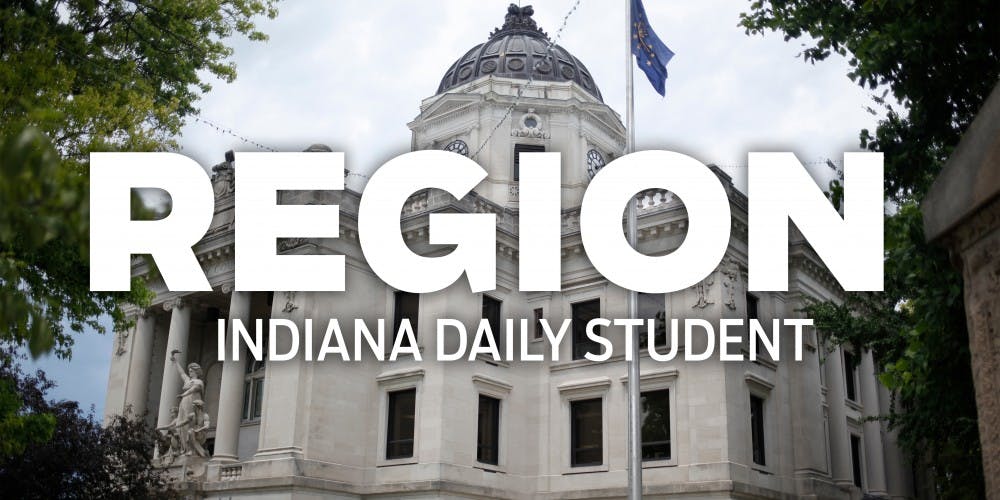Every Sunday IU freshman Isaac Thuesen’s parents wake up, put on their Sunday best and attend Mass at their episcopal church in Indianapolis. Sixty miles away, Thuesen is still in bed in his dorm room.
Thuesen grew up going to church regularly. At the age of 9, he became a choir boy who attended weekly rehearsals and sang at two Sunday Masses every week, but now Thuesen identifies as agnostic and hasn’t gone to church since coming to IU.
“I probably would have left the church even before that if it wasn’t such an important tradition in my family,” he said.
At 16 percent of the global population, religious “nones,” people with no religious affiliation, compose the third-largest religious group after Christianity and Islam, according to a Pew Research study released earlier this month. By 2020, researchers expect to see the number of religiously unaffiliated rise by 7.6 million, mostly due to individuals like Thuesen who are leaving Christian churches.
Among individuals from ages 18 to 29, 46 percent think religious nones will be the majority by 2050, according to the same study.
Thuesen said he too believes non-religious people may one day outnumber other religious groups, but it will take a lot of time.
“Religion still has such a strong hold on people,” he said. “It’s a really central part of people’s identities, so it’s not going to decrease like that in an instant.”
People, especially young people, may be turning from religion because they now find comfort in other things, such as Netflix, the internet or other people, Thuesen said. As a result, religion is no longer needed to provide solace.
“Today we’re growing up in an environment where we’re exposed to many different ideas and faiths rather than just our parents’,” Thuesen said. “We’re also being taught to always question things, even religion.”
Robin Allen, researcher on atheism and associate professor at Boise State University, said young people often leave organized religion as they begin to question the logic behind certain religious beliefs.
“They’re often told to not ask those questions and just believe,” Allen said. “They feel like they’re not being told the whole truth, and they lose trust in adults to be honest with them.”
People may look for answers on the internet, where communities of atheists and agnostics have similar doubts and questions, she said. As a result, the rise of the internet may have served as a catalyst for the rise of religious nones.
Thuesen said he also was exposed to other religions and felt uncomfortable assuming Christianity was more correct than any of those religions. At a fundamental level, he just doesn’t believe in biblical teachings.
While it is acceptable to be religious, the need for religion arises from a need for stability and safety, Thuesen said.
“Religion is a security blanket,” Thuesen said. “When people fear death or instability, they turn to religion.”
Allen said many Scandinavian countries have the highest nonreligious populations, but they are also large social welfare states that have government-provided health care and higher education.
In places like these Scandinavian countries, the basic needs of citizens are taken care of by the government and poverty is low, she said. As a result, there’s less of a need for religion to provide stability.
“There’s not as much uncertainty that something bad will happen in these countries, so some think living in a stable, safe, predictable world reduces the need of religion to provide an anchor,” she said.
Thuesen said many of his atheist and agnostic friends who try to attend Mass get bored or confused by the rituals. He also knows students who feel alienated from their churches because of social and political differences.
Allen said people are also turned off by the judgmental language of some churches and religious politicians. Despite the rise in numbers of religious nones, Allen said it can still be difficult for nonreligious people to be open about it in their families and communities.
Thuesen said he has not told his mother that he is agnostic, but when he does he expects her to be disappointed but eventually accept it.
Even in the country as a whole, Allen said nonreligious people continue to be one of the most disliked groups in the United States. She said this dislike for nones is rooted in the flawed belief that the U.S. is a Christian nation.
Allen said nones face violence and persecution around the world. In 13 different countries, atheism is illegal and punishable by execution. In the U.S., many decide to keep quiet about their beliefs to appease family members.
No one who she has talked to while interviewing nonreligious individuals for research has regretted their decisions after being more open about their religious views or lack thereof, though.
“They all thought it was better to be their authentic self and to be true to who they are rather than live a lie,” she said.
Allen said part of the reason nonreligious people are disliked is because people associate them with moral decline. During her interviews with nonbelievers, Allen found they had different sources of morality.
“People assume nonreligious people can go around wreaking havoc and won’t face real consequences because they don’t believe in God or heaven or hell,” she said. “That really is not true.”
Despite these perceptions, Thuesen said it is more socially acceptable to be atheist and agnostic today. He said he sees religious people being teased for their beliefs more than others, especially in college settings. Thuesen said he has never faced any prejudice for his agnosticism. Allen said society should continue to move toward accepting nonreligious people in all communities and all families.
“We need to accept people of all religions,” Allen said. “But we also need to accept people who don’t have a religion.”






